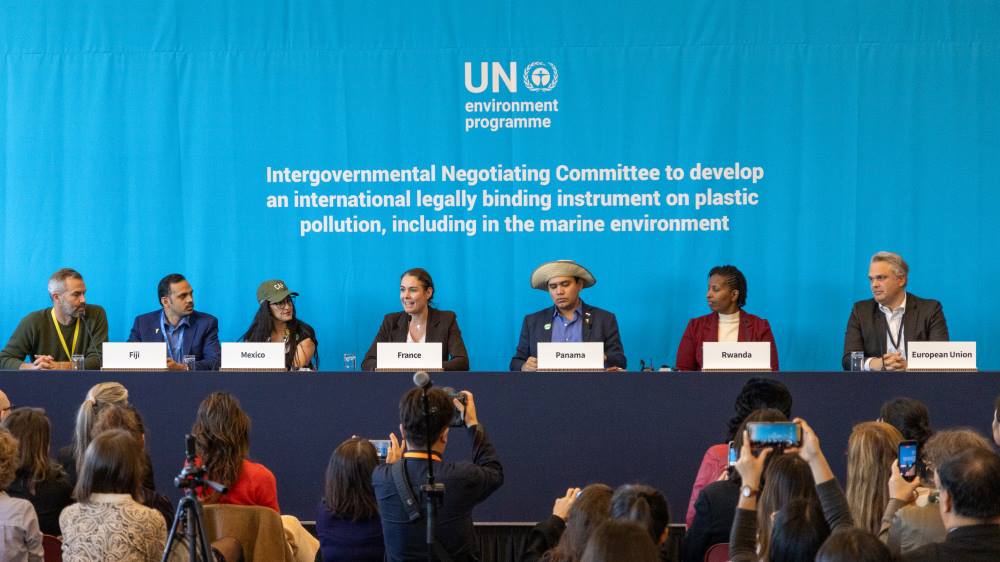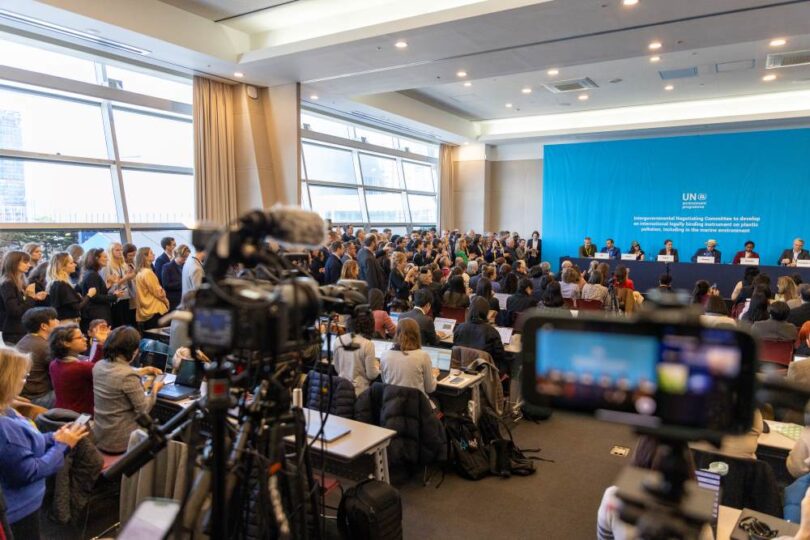WWF is disappointed that countries failed to reach an agreement despite a vast majority of governments demanding ambitious measures that science has shown can stop plastic pollution.
Almost all countries stood up and applauded Rwanda’s lead negotiator Juliet Kabera’s call on countries during the final INC-5 plenary to symbolically show their support for a globally binding and ambitious plastic pollution treaty that extends over plastics’ entire lifecycle.
In addition, during the plenary session, Mexico together with a majority group of 95 countries from various regions, stated that they will not accept a treaty without binding global bans and phaseouts on harmful plastic products and chemicals of concern.
WWF calls on countries to unite on the necessary binding upstream measures to end plastic pollution, develop the lists of products and chemicals to be banned, and to conclude the negotiation process as soon as possible.

Essential measures of a future agreement must include global bans and phaseouts of harmful plastics and chemicals, global product design, a robust finance mechanism, and means for strengthening the treaty over time.
Commenting on the failure to reach agreement, Eirik Lindebjerg, Global Plastics Policy Co-Lead, WWF, said: “After another week of hard-fought and frustrating negotiations in Busan, the meeting has closed with governments no closer to agreeing on a solution to the worsening plastic crisis. It has now been over 1,000 days and five negotiation meetings since governments agreed to establish a legally binding treaty to end plastic pollution. Over this time, more than 800 million tonnes of plastic has been produced, over 30 million tonnes of which have leaked into our ocean, harming wildlife, poisoning ecosystems and destroying lives, to say nothing of the plastic that has been sent to landfill or burnt.
For too long, a small minority of states have held the negotiation process hostage. It is abundantly clear that these countries have no intention of finding a meaningful solution to this crisis and yet they continue to prevent the large majority of states who do. It is unjust that those who bear the greatest burden of plastic pollution are being denied the opportunity to forge a solution among themselves by those profiteering off the unregulated production and consumption of plastic. It is increasingly clear that the majority of states that are committed to securing a meaningful agreement with the necessary binding measures to end plastic pollution must be ready to vote or adopt a treaty-of-the-willing. If INC-5 has shown us anything it’s that we are not going to find the solution we desperately need through more of the same. The crisis demands more. People and wildlife demand more. And it is our governments’ job to deliver.”
Erin Simon, vice president and head of plastic waste and business, WWF, said: “It’s disheartening to walk away from INC-5 without a meaningful treaty in hand. Allowing a minority of actors to obstruct progress through the week, predictably resulted in breaking the promise made at the beginning of these talks. When Member states unanimously agreed to deliver a treaty the planet needs by 2024, the world believed them. Now, the price for inaction is far greater than wasted time, it puts both planetary and human health on the line and sets us up for a scenario where ambition could diminish over time.
But we can’t ignore the progressive majority. From Rwanda’s statement on behalf of over 84 countries demanding binding action on elimination of products and chemicals of concern and a target to reduce production to Mexico’s proclamation for 95 countries, the overwhelming majority applauded in enthusiastic support. This sentiment cannot be ignored as we move forward.
As we look ahead to 2025, and navigate what an INC 5.2 could look like, countries must come to the table ready to fight for our future. The current draft has some of the ingredients for success, but we can’t back down on delivering a legally binding text that finally puts us on a course to eliminate plastic pollution.”







